
Iranian-made Peugeot 301 platform to be used for a number of other domestic cars
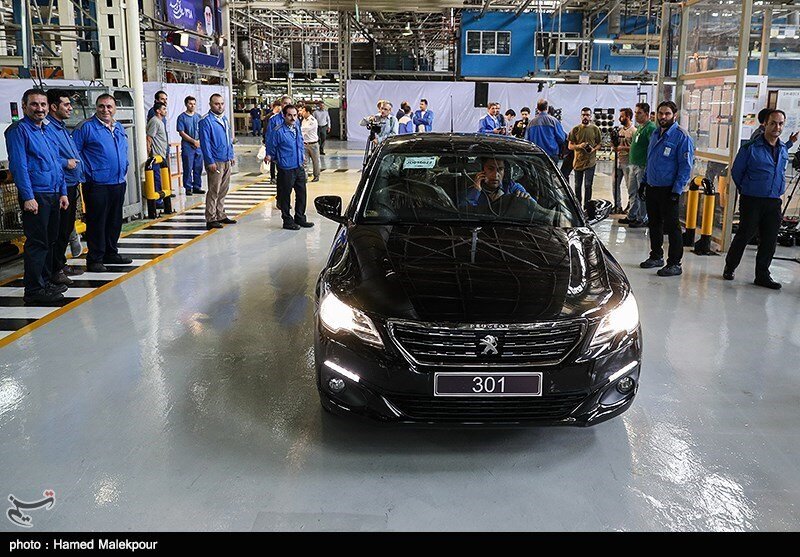
More than 1,000 parts have been identified for manufacturing ‘Peugeot 301’ passenger car, he said, adding, “over 140 top Iranian auto parts manufacturers have participated for manufacturing the parts.”
He said that ‘Peugeot 301’ is a new platform which is considered as an outset for manufacturing new products of IKCO and added, “this passenger car observes requirements of 85-point standards and is environment-friendly.”
Starting production with at least four-star quality level and attaining objectives of industrialization and commercialization in the first six months of the next year have been cited as the macro objectives for this car, according to Moqimi.
CEO of IKCO noted that the car will be manufactured in two models, with manual or automatic transmission gearboxes, adding, “promoted domestically-manufactured gearbox (4BE) with less noise and hydraulic clutch are some features of this passenger car.”
In mid-July, IKCO officially inaugurated a production line for Peugeot 301 more than three years after the French owner of the car pulled out of a partnership with the Iranian company citing the threat of American sanctions.
During the ceremony for the test production of the sedan, Hashem Yekke Zareh, the CEO of the group at that time, said IKCO plans to begin the mass production of Peugeot 301 after the end of the current Iranian calendar year in March, adding that Iran’s largest carmaker had put some €60 million worth of investment in the project, Press TV reported.
“Some 100,000 units of this car will be produced in phase one and (the annual production) will increase to 250,000 units in the next four years without any support from Peugeot,” he said.
Yekkeh Zareh insisted that the car will keep the logo and name of France’s Peugeot despite the fact that the company reneged on its promises and left the Iranian market in June 2016.
“Ultimately, these cars belong to Peugeot,” he said, adding that the IKCO will launch similar production lines for Peugeot 208 and 2008, models that was supposed to be produced in Iran as part of a contract signed in January 2016.
Other officials in the IKCO said the company would soon become almost self-sufficient in production of the Peugeot 301.
Based on its deal with IKCO, the PSA Peugeot Citroën was supposed to invest up to €400 million over a five-year period to produce, launch and market three of its models, including the 301.
In late July, an IKCO director had announced that the company would put domestic engine EC5, an improved version of TU5 on Peugeot 301 cars.
TU5, which is presently installed on Peugeot 206 and some types of Peugeot Pars, is very popular in Iran, Beigloo told IRNA at that time.
EC5 engine has been developed by IKCO Engine Research Center, he said.
It is for the first time that more than 60% of a foreign vehicle is being indigenized, Beigloo said, adding that some 80% of the car will be domestically produced within the next few months.
Noting that the platform used for manufacturing Peugeot 301 cars is a new one, he said that the Iranian spare parts manufacturers could adjust themselves with the modern technology despite the sanctions imposed on the country.
In mid-May, Iranian Industry, Mining and Trade Minister Reza Rahmani issued a directive on “strengthening domestic manufacturing of imported auto parts”.
Addressing two of his deputies, Farshad Moqimi, then deputy for industrial affairs, and Mohammad-Baqer Ali, the board chairman of Iran’s Industrial Development and Renovation Organization (IDRO), the minister put emphasis on using the highest potential of human resources for strengthening domestic manufacturing of auto parts which are currently imported to the country.
Highlighting the orders of the Supreme Leader of Islamic Revolution Ayatollah Seyed Ali Khamenei on supporting production in the current Iranian calendar year (began on March 21), which is named the year of “Pickup in Production” by the supreme leader, Rahmani stressed that cooperation among all car makers, auto part manufacturers, knowledge-based companies and enterprises is vital for strengthening domestic manufacturing of imported auto parts.
This movement should be all-out promoted to combat sanctions and also prevent from exit of foreign currency from the country, the minister noted.
He said the policy of domestic manufacturing of auto parts should be seriously followed up, and in this due the capable manufacturers should be seriously supported.
And in a ceremony attended by the industry minister on Saturday, deals worth 12.3 trillion rials (about $286 million) were signed with domestic manufacturers of auto parts for producing 42 different car parts.
As reported, producing the mentioned auto parts inside Iran is going to have saved the country over €91 million.

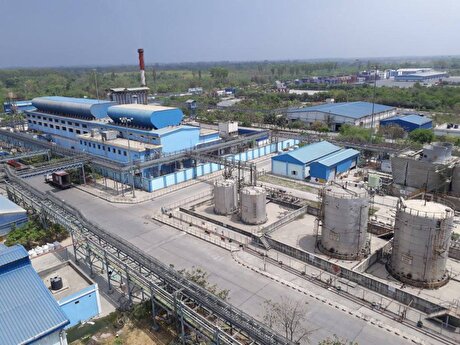
Hindustan Zinc to invest $438 million to build reprocessing plant

Gold price edges up as market awaits Fed minutes, Powell speech

Glencore trader who led ill-fated battery recycling push to exit

UBS lifts 2026 gold forecasts on US macro risks

Roshel, Swebor partner to produce ballistic-grade steel in Canada

Iron ore price dips on China blast furnace cuts, US trade restrictions

EverMetal launches US-based critical metals recycling platform

US hikes steel, aluminum tariffs on imported wind turbines, cranes, railcars
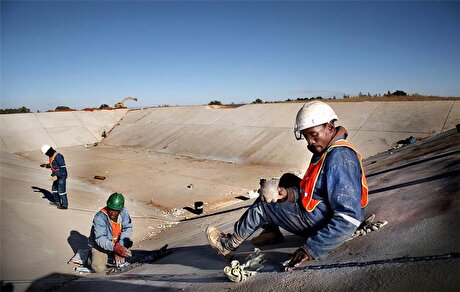
South Africa mining lobby gives draft law feedback with concerns
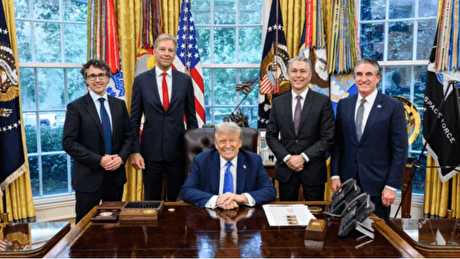
Trump raises stakes over Resolution Copper project with BHP, Rio Tinto CEOs at White House
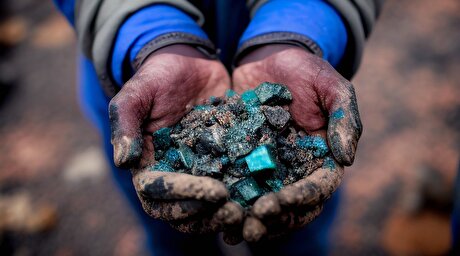
US seeks to stockpile cobalt for first time in decades

Trump weighs using $2 billion in CHIPS Act funding for critical minerals

Nevada army depot to serve as base for first US strategic minerals stockpile

Emirates Global Aluminium unit to exit Guinea after mine seized

Tailings could meet much of US critical mineral demand – study

Codelco cuts 2025 copper forecast after El Teniente mine collapse

Glencore targets 1Mt of copper in Argentina over coming decade

Viridis unveils 200Mt initial reserve for Brazil rare earth project

SQM boosts lithium supply plans as prices flick higher

US seeks to stockpile cobalt for first time in decades

Trump weighs using $2 billion in CHIPS Act funding for critical minerals

Nevada army depot to serve as base for first US strategic minerals stockpile

Tailings could meet much of US critical mineral demand – study

Codelco cuts 2025 copper forecast after El Teniente mine collapse

Glencore targets 1Mt of copper in Argentina over coming decade

Viridis unveils 200Mt initial reserve for Brazil rare earth project

SQM boosts lithium supply plans as prices flick higher

Abcourt readies Sleeping Giant mill to pour first gold since 2014














